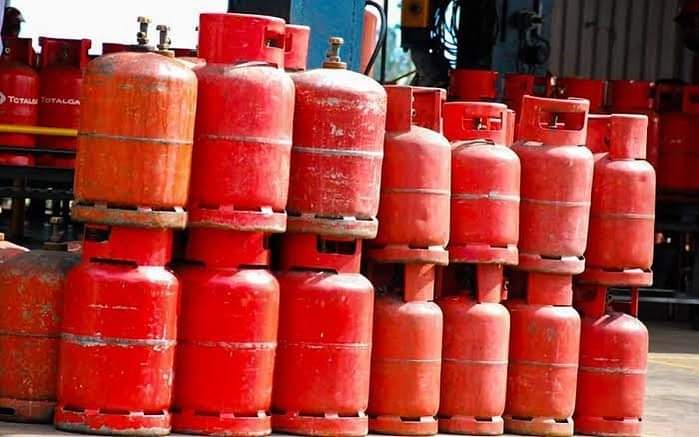The Nigerian Association of Liquefied Petroleum Gas Marketers (NALPGAM) has raised the alarm over the rising price of liquefied petroleum gas (LPG), otherwise known as cooking gas, in the country.
Mr Abideen Olatunbosun, National President, NALPGAM, raised the alarm during the 36th Annual General Meeting of the association held in Ibadan on Tuesday.
Olatunbosun appealed to the Federal Government to find a lasting solution to the rising price of cooking gas in the country, stressing that if not addressed, cooking gas might become a commodity only affordable to the affluent.
“It is very vital for me to state that continuous increase in the price of gas in recent time stands as a big challenge to LPG marketers.
“The government needs to find ways to ensure stability of gas price as well as make gas available to common Nigerians.
“As a country, we need to improve on our gas utilisation level and if we all adopt gas, it will save our forest and improve quality of our lifestyle and the economy will grow,” he said.
According to Olatunbosun, the hike in the price of gas is a concern to all.
Olatunbosun called for collaborative efforts between the government and the private sector to establish critical gas infrastructure.
Speaking at the event, the guest speaker, Prof. Sunday Isehunwa of the Department of Petroleum Engineering, Faculty of Technology, University of Ibadan, said that LPG offered a huge promise for increased domestic gas utilisation in Nigeria.
He said that cooking gas also served as the country’s energy transition to net-zero carbon emission by 2060.
According to Isehunwa, there is need for increased LPG supply to meet rising demand and curtail sharp practices by some operators.
“The Nigeria Liquefied Natural Gas (NLNG) has been the major supplier of LPG, however, additional supplies are essential through functional refineries, and adequate natural gas processing facilities.
“Removal of difficulties in importation when necessary is also essential for additional supplies.
“Adequate infrastructure development is highly necessary to enhance access to LPG by rural communities.
“Accessibility will increase through increased economic empowerment of consumers and relatively low costs of products,’’ the don said.
Also, Mr Ogbugo Ukoha of the Nigerian Midstream And Downstream Petroleum Regulatory Authority (NMDPRA), said that the recent deregulation policy would result to a reflective petroleum products pricing.
Ukoha, who is the Executive Director, Distribution Systems, Storage and Retailing Infrastructure, NMDPRA, noted that current data had shown that the domestic gas supply had overtaken the import supply.
He said that necessary infrastructure investment must be put in place to address challenges of gas reserve so as to achieve smooth distribution of the product.
“Our focus is to make necessary investment in gas infrastructure to increase LPG supply so as to force its price down for Nigerians,” Ukoha said.
The AGM featured the dissolution of the current governing council of NALPGAM, election of new national executives and the presentation of plaques.

